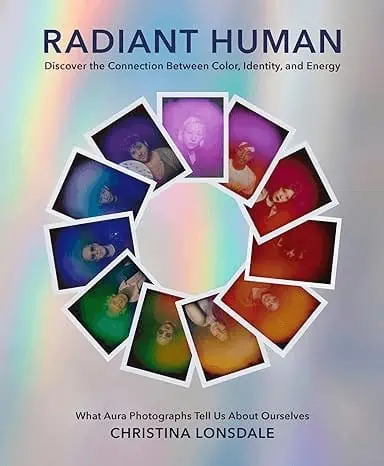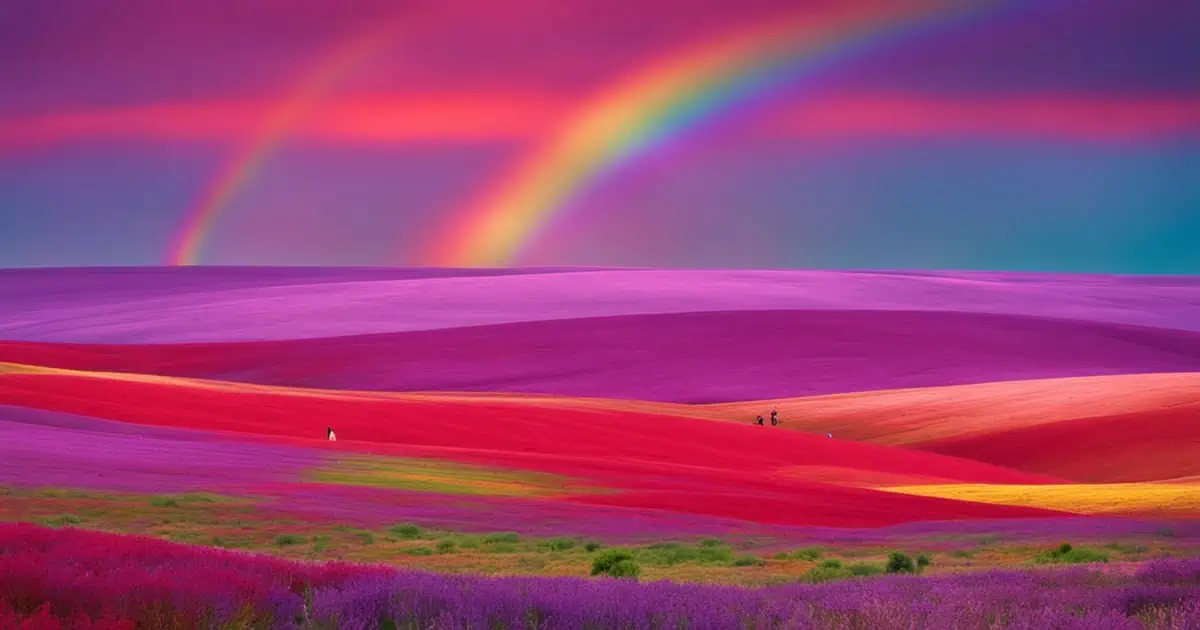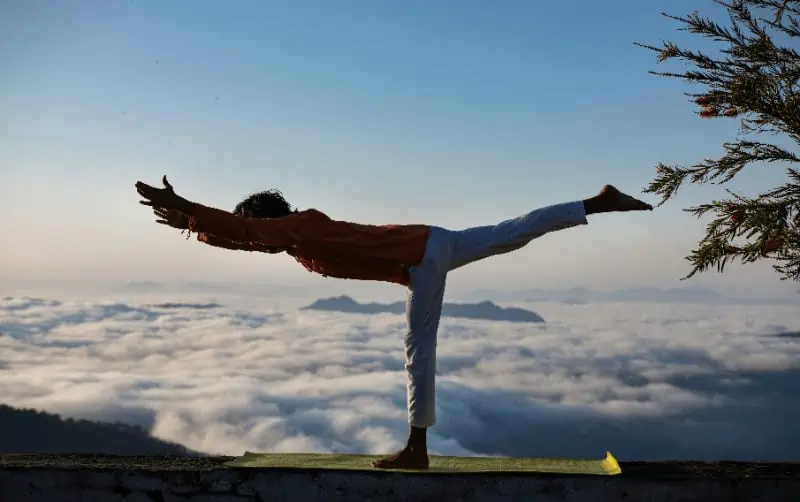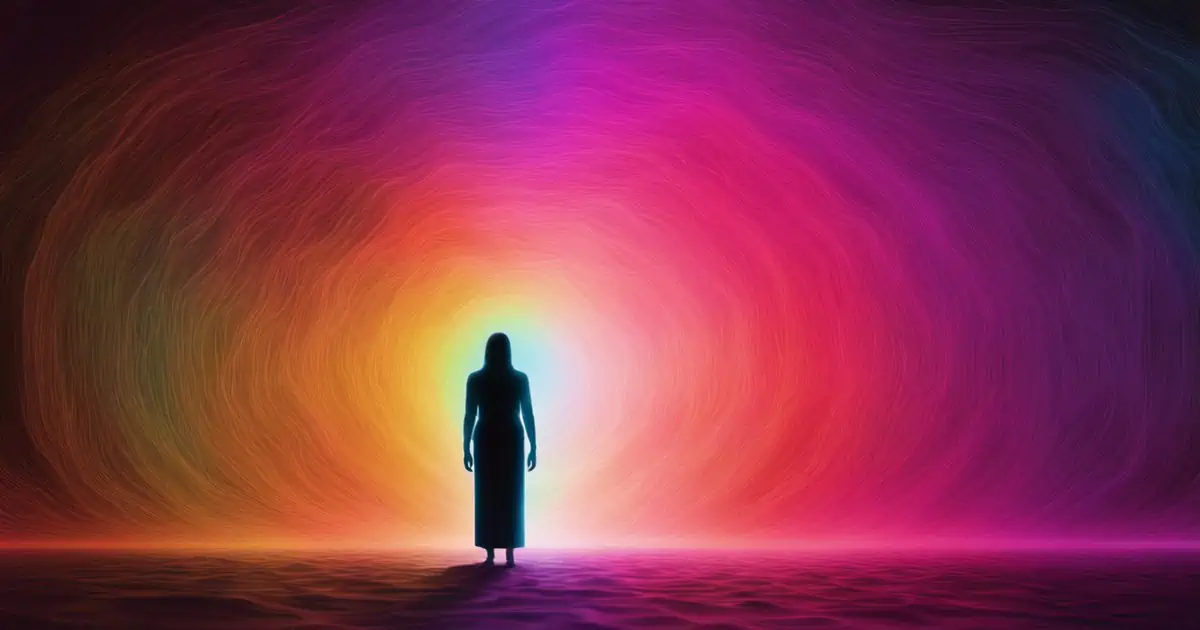Have you heard of auras? I’ve been studying them since I had my own aura read by an expert, and it’s been eye-opening. Auras are energy fields in everything around us, including you and me – from objects to ideas. They reflect the state of our soul and our overall vitality.
The concept of auras has been around for centuries, and it’s full of colorful stories and fascinating insights into our intuitive interactions with the world. But auras aren’t just a mystical and spiritual phenomenon—they play a significant part in our lives, offering insight into our energy fields.
Let’s delve into the subject of aura meaning. I would like to share with you all the knowledge, discoveries, and practices I have accumulated so far. By learning more about auras, you will better understand yourself, discover new aspects of your personality, and overcome challenges.
Contents
- 1 Reality and Presence of Auras
- 2 Decoding Significance of Aura Colors
- 3 Aura Color Meanings
- 4 The Evolution of Aura Colors and Their Meanings
- 5 Understanding Changes in Dynamic Auras
- 6 Aura Interpretation Guidance
- 7 Exploring Different Aura Planes: Physical, Mental, and Emotional
- 8 The Dynamic Nature of Auras: Can They Change Over Time?
- 9 Auras vs Vibes: Understanding the Difference
- 10 Concluding Thoughts on Auras
Reality and Presence of Auras
Science Insight
Scientists have been scratching their heads over this subject. Some say it’s all about electromagnetic fields. They believe our bodies radiate vitality, creating an aura. It’s like in the human body we’re light bulbs, glowing not just with light but with the vitality of life, radiating an energy field sensed by others.
Others argue there is no concrete proof to test it. As a result, many people point out that they need something they can measure or see before giving the correct answer and opinions.
Personal Experiences Matter
Many folks swear by aura readings. They may feel a great deal of energy in the body and aura readings around others or things. During my personal experience with an aura reader, I discovered that the sense people feel when they see the aura can vary significantly. At times, they feel a warm, radiant energy; other times, it can be cold or even prickly, like a well of color.
If you are curious to see how the aura hue looks, Author Christina Lonsdale’s book “Radiant Human” features hundreds of Polaroid examples of human auras taken over a six-year period. The book explores the layer of the human aura and the characteristics it reveals, accompanied by the subjects’ stories and aura colors shown through aura photography.

Spirituality Sees Auras
Spiritual practices often recognize the aura as reflections of the soul. They are reading energy on a bit different level, which can’t be seen with the naked eye but may be present. In addition, many cultures believe in this powerful energy connection between the physical and spiritual world.
For instance, in Hinduism, a person’s aura in the air may be seen as an expression of their spiritual energy or prana.
Decoding Significance of Aura Colors
Aura colors are more than just hues. In simple words, they’re a window into our personality type and emotional state.
Aura Colors and Personality Traits
Ever wondered why you’re drawn to certain hues? It’s your aura speaking! Each aura color corresponds to specific personality traits. For example, folks with a blue aura may often exude calm energy and reliability, while those sporting a red aura can be fiery and passionately energetic.
Emotional State Influencing Aura Color
Emotions may play a big part in the energy and color of our aura. When you’re feeling low on energy, your aura might take on darker shades. On the flip side, happiness could light up your aura with energy!
Energy Associated With Different Aura Shades
Each aura color carries its own unique energy vibe. Green is all about growth, renewal, and energy – think lush forests or springtime bloom. Purple, on the other hand, radiates spiritual awareness and intuition.
Aura Color Meanings

The aura hue can provide insight into a person’s spiritual, emotional, and physical state. They correspond to the chakra energy centers and are classified into seven categories represented by the shades of the rainbow.
Aura hues can vary in intensity, brightness, and hue depending on a person’s mood, energy, and overall health.
Red Aura (root chakra) symbolizes strength, confidence, and assertiveness. It can indicate intense emotions, such as passion, greed, frustration, and anger. People with a red aura may have strong physical desires and be instinctually driven towards survival and self-preservation.
Blue Aura (throat chakra) symbolizes calmness, peace, and empathy. People with this aura have strong intuition and communication skills, making them excellent listeners and communicators. They are compassionate and gentle and often found in helping professions.
Yellow Aura (solar plexus chakra) symbolizes creativity, energy, and confidence. People with this aura are responsible and show great self-esteem and willpower.
Orange Aura (sacral chakra) symbolizes passion, creativity, and sensuality. People with this aura may be highly creative, outgoing, and affectionate. They may struggle in relationships with those who are more reserved or emotionally distant.
Indigo Aura (third eye chakra) symbolizes intuition, empathy, and spiritual awakening. People with an indigo aura are highly sensitive, intuitive, and drawn to spiritual practices.
Green Aura (heart chakra) symbolizes growth, balance, and harmony. People with a green aura are nurturing, empathetic, and have a strong connection with nature. They are grounded, stable, and compassionate, making them great listeners and supportive friends.
Purple Aura (crown chakra) symbolizes spirituality, intuition, and higher consciousness. Individuals with a purple aura possess heightened perception and are natural leaders who inspire others.
The Evolution of Aura Colors and Their Meanings
Aura shades have evolved in meaning over time. Society and culture play a big role in this.
Interpretations Over Time
Back in the day, people thought an aura was just a rainbow around someone’s head. But now, we know better. Each color has its own vibe.
For example, red used to mean danger or anger. Now, it can also mean passion or courage.
Understanding Changes in Dynamic Auras
Dynamic auras aren’t static. They shift and change, influenced by various factors.
Factors Shaping Aura Dynamics
The aura is like a mood ring. They reflect our emotions and experiences.
Stressful situations can darken an aura.
Joyful moments often brighten it.
It’s all about energy flow!
Health Status and Aura Alterations
Our physical health also impacts our aura. It’s not rocket science but pure energy dynamics.
Chronic illnesses often result in a dull, murky aura.
Robust health usually radiates a vibrant, glowing aura.
Remember, your body’s well-being reflects in your aura shade!
Personal Growth Impact on Auras
Have you ever noticed how people glow when they’re evolving? That’s personal growth affecting their dynamic auras!
As we grow emotionally and spiritually, our aura expands and brightens.
Stagnation or regression may cause the aura to shrink or dim.
Personal development is key to maintaining vibrant aura color!
Aura Interpretation Guidance
Accurate Interpretation Steps
Reading an aura isn’t rocket science. It’s a skill you can master with practice.
Start by quieting your mind.
Focus on the person, not their physical appearance.
Notice the energy field around them; that’s the aura!
Pay attention to shades and hues; each color has a unique aura meaning.
Exploring Different Aura Planes: Physical, Mental, and Emotional

Unique Traits Across Planes
Each aura plane has its own vibe. The physical body reflects our overall health. It’s like a mirror showing how we’re doing on the inside.
For instance, a vibrant physical aura might mean you’re in tip-top shape.
On the flip side, a dull or cloudy aura could signal that something’s off.
How Planes Interact
The planes don’t work solo. They’re like teammates in a football game, each playing their part but also working together.
Your emotional state can affect your physical body. Have you ever felt butterflies when you’re in love? That’s your emotional aura impacting your physical one.
Similarly, your mind (mental plane) can influence both your emotions and body. Stressful thoughts can lead to tense muscles or an upset stomach.
Plane Influence on Overall Aura
Each plane contributes to the big picture of our aura. It’s like painting; each color adds depth and detail to the artwork.
Your personality (mental plane) can shape your overall aura experience.
Healthline suggests techniques for reading these energy layers in others’ auras.
By understanding how these planes work together, we can better tune into our own energy and that of those around us.
The Dynamic Nature of Auras: Can They Change Over Time?
Auras are mysterious and complex. Their changeability has sparked many questions.
Evidence Supporting Changeability
Research suggests auras can modify over time. For example, a study in the Journal of Alternative and Complementary Medicine found that the aura color altered with mood shifts.
Blue might turn to red during anger.
Green could become yellow when happy.
This evidence supports the idea that our auras aren’t stagnant but dynamic.
Factors Contributing to Alterations
Several elements can influence aura changes.
Emotions: As mentioned earlier, mood swings can lead to color transitions.
Health: Illness or physical stress may cause alterations.
Environment: Surroundings and energy fields also play a significant role.
These factors suggest that our day-to-day experiences directly impact our aura’s state.
Frequency of Changes
How often do these changes occur? It depends on various factors like personal growth, emotional stability, and health status.
- Some people may experience daily shifts.
- Others might see changes over the years.
In essence, there’s no fixed timeline for aura transformations; it varies from person to person.
Auras vs Vibes: Understanding the Difference
Defining Vibes in Relation to Auras
Vibes, short for vibrations, are feelings you get from people or places. You know, like when you walk into a room and something feels off? That’s a vibe. Auras, on the other hand, are energy fields around individuals.
- Vibe: Feeling or atmosphere a person or place gives off
- Aura: Energy field surrounding an individual
Comparison of Interpretation Methods
The way we interpret vibes and aura differs. With vibes, it’s more about intuition – gut feelings. But with aura, some folks claim they can actually see them!
Interpreting Vibes: Trusting your gut feeling
Interpreting Aura: Visual perception (for some)
Instances of Confusion Between the Two
Sometimes, people mix up vibes and aura. It’s easy to do because they’re both about energy and feelings.
Concluding Thoughts on Auras
The exploration of auras has unveiled an intriguing aspect of human existence, demonstrating their reality, presence, and dynamic nature. The color shades and changes in our aura provide valuable insights into our physical, mental, and emotional states.
Moreover, understanding the difference between aura and vibes helps distinguish these two interconnected yet separate phenomena. The cultural implications and depictions of auras in popular media further add to their significance in our lives.
In addition, auras are not static; they evolve over time, reflecting our personal growth and experiences. Engaging with aura interpretation requires open-mindedness, patience, and practice. For those interested in exploring this fascinating realm further, consider seeking guidance from experienced aura readers or studying resources available online or at local libraries.
FAQ 1: Can anyone learn to see the auras?
Yes! Seeing auras is believed to be a skill that can be developed with practice and guidance.
FAQ 2: What is my aura?
Take a minute to stand in front of a white background and look at yourself in the mirror. Focus on a point in the middle of your forehead, and without moving your eyes, scan the outer perimeter of your head and shoulders. The color that surrounds your head and shoulders is your aura, and you can learn about its symbolism in this article.
FAQ 3: Can my aura change over time?
Absolutely! A person’s aura is dynamic and evolves with their personal growth and life experiences.
FAQ 4: Are there any scientific studies on auras?
While the study of aura falls largely within metaphysical disciplines rather than traditional science, some research has been conducted linking bioenergy domains (a similar concept to aura) with health conditions.
FAQ 5: Is there any harm in getting an aura reading?
No harm should come from having an aura reading done by a reputable practitioner. However, it’s important to approach such readings with an open mind but also critical thinking.


